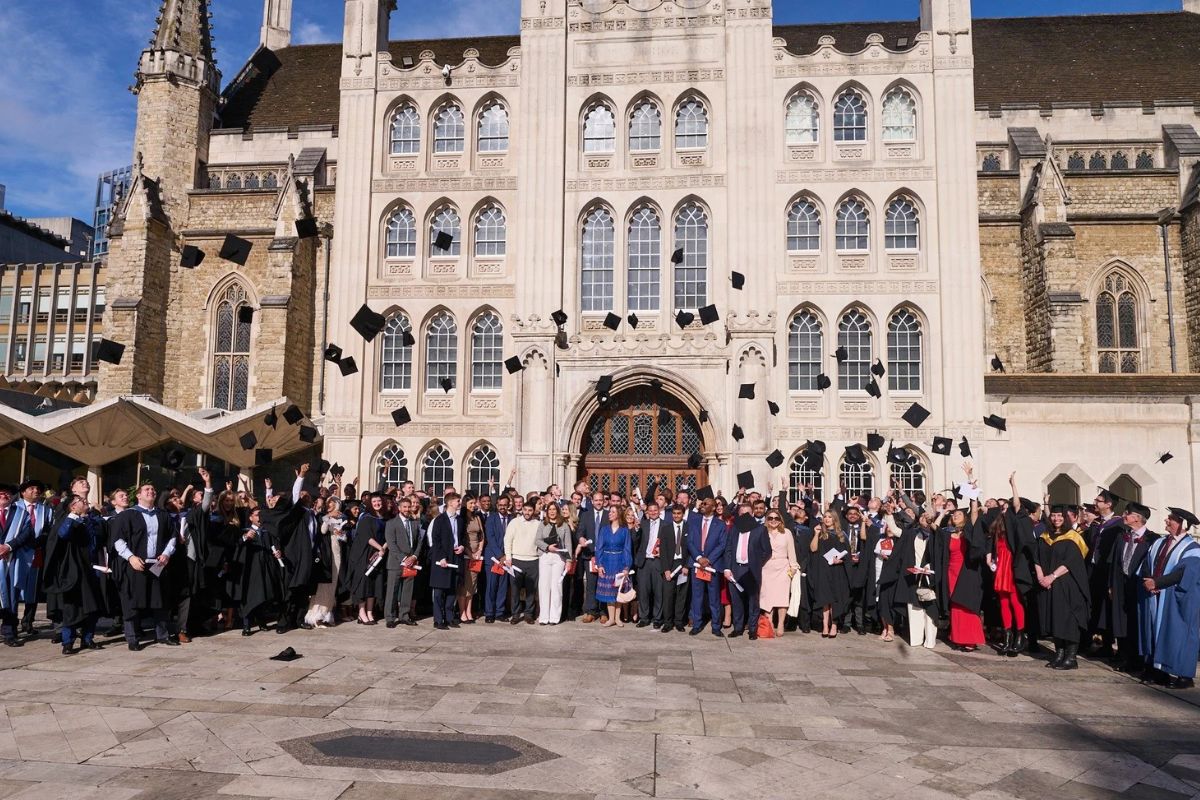Breaking the Snobbery: Degree Apprenticeships and Career Advancement

I have returned to the world of apprenticeship delivery, after a six-year “EPAO” hiatus, bringing with me a fresh perspective.
Having once understood the widely held opinion that the rise of degree apprenticeships was often termed simply as a “land-grab” by the middle classes, I am now witnessing firsthand the transformative impact that degree apprenticeships can have on individuals, particularly those from underprivileged backgrounds.
In a landscape where traditional higher education has long held a privileged status, the apprenticeship sector continues to face an ongoing battle against biases and misconceptions significantly in post-16 career advice and guidance. One such manifestation of this bias however is emerging from within, this time it is the reverse snobbery that undermines the value of higher-level, degree apprenticeships.
I will attempt to offer a perspective from within a degree apprenticeship provider and challenge the belief that the apprenticeship system, levy and all, should be exclusively reserved for lower levels of vocational education, and aim to shed light on the immense career opportunities that higher-level apprenticeships offer.
The Middle-Class Myth
Growing up in a mining village in South Yorkshire, I had a very solid working-class upbringing that shaped my perspective on education and career opportunities. The economic decline experienced in the South Yorkshire coalfields during the 1980s had a profound impact on communities, education providers and the wider economy which resulted in limited educational opportunities for many.
One prevailing criticism against degree apprenticeships is the perception that they predominantly benefit the middle class, enabling them to seize all the opportunities which the apprenticeship levy offers, while leaving the perceived working-class individual behind. However, this assumption fails to acknowledge the true potential of degree apprenticeships to break down barriers and provide equal access to career and professional advancement.
The belief that apprenticeship funding should only be directed towards lower-level qualifications is often rooted in a number of factors.
Firstly, there exists a historical association between apprenticeships and skilled trades such as construction, catering or hairdressing, which are commonly and wrongly perceived as more suitable for individuals from working-class backgrounds and that lower-level apprenticeships are the only route out of economic depravity.
Secondly, there is a concern about the allocation of limited resources. The apprenticeship levy is a fund collected from employers to support apprenticeship training and development. Some argue that these funds should be prioritised for lower-level apprenticeships, which are seen as more directly aligned with workforce development and addressing skills shortages. From this perspective, investing in higher education through the apprenticeship levy may be seen as diverting resources away from areas with more immediate labour market needs.
Thirdly, there may be a belief that higher education should be funded through alternative channels, such as tuition fees or student loans. The idea is that individuals pursuing higher education should bear the financial responsibility themselves, rather than relying on funds collected specifically for apprenticeships. This viewpoint emphasises personal accountability and the principle of individual investment in education.
It is important to note that these opinions may be influenced by a variety of factors, including cultural and societal perceptions of apprenticeships and higher education, as well as economic and political considerations. The debate around the funding of higher education through the apprenticeship levy is complex and multifaceted, with varying perspectives on the appropriate use of these resources and the balance between different levels of education and training.
It is crucial to emphasise that degree apprenticeships are not a privilege solely reserved for the middle class. They can empower individuals by offering a viable pathway to career advancement and higher education. By promoting awareness, providing guidance, and ensuring equal access to information about degree apprenticeships, we can challenge the notion that funding should only be allocated to lower levels of education. This way, we can create a more inclusive apprenticeship landscape that caters to the diverse needs and aspirations of individuals from all socio-economic backgrounds.
In the last four months, I have witnessed individuals in both our London and York campuses, all working professionals who are seeking career advancement. They are mainly from regular working backgrounds, embracing degree apprenticeships as a means to excel in their careers. These apprenticeships offer a unique opportunity to acquire higher-level qualifications while gaining practical experience on the job.
Levelling Up: Government Policy and Focus
The government’s commitment to “levelling up” and creating equal opportunities for all has been instrumental in recognising the value of degree apprenticeships. The current focus on investing in vocational education, including degree apprenticeships and apprenticeships more generally ensures that individuals from all backgrounds see vocational skills and apprenticeships as a viable route in the post-16 options young people have.
The “levelling up” policy implemented by the Conservative government has sparked debates regarding its effectiveness and impact on creating equal opportunities. Critics argue that the policy fails to address deep-rooted socio-economic disparities and may not adequately address the systemic barriers faced by working-class individuals. They claim that while investment in vocational education and degree apprenticeships is important, more comprehensive measures are needed to address the underlying issues that hinder social mobility.
Proponents of the “levelling up” policy argue that it represents a step in the right direction. They believe that by investing in vocational education and degree apprenticeships, the government is providing tangible pathways for individuals from disadvantaged backgrounds to access high-quality training and education. They argue that such investments can empower individuals to acquire valuable skills, improve their employability, and break free from generational cycles of limited opportunities.
Critics of the policy express concerns about the potential for inadequate funding and support, which may limit the effectiveness of degree apprenticeships in truly levelling the playing field. They emphasise the need for sustained investment, comprehensive guidance, and robust support systems to ensure that degree apprenticeships are accessible to individuals from all backgrounds and that they lead to meaningful career progression and advancement.
Ultimately, the debate surrounding the “levelling up” policy and its impact on degree apprenticeships boils down to questions of implementation, resource allocation, and the effectiveness of broader social and economic policies. While the policy may represent a step in the right direction, ongoing evaluation and adjustments are necessary to address the nuances and complexities of social mobility and equal opportunities.
At both our York and London campuses, this focus on levelling up has resulted in increased funding and support for degree apprenticeships by local employers, who are now looking to maximize their recruitment strategy in light of the apprenticeship levy. Local initiatives are now being implemented to provide information and resources to all communities, enabling them to make informed decisions about their education and career choices. As a result, individuals who may have previously felt excluded or overlooked now have the opportunity to pursue a higher education pathway and unlock their full potential.
Career Advancement Opportunities
In London and York, I have witnessed firsthand the positive impact that degree apprenticeships have had on individuals’ lives, particularly those from underprivileged backgrounds.
Skills and Employability: Degree apprenticeships are designed in collaboration with local industry leaders, ensuring that the skills and knowledge gained are highly relevant and sought after in the job market. Apprentices develop practical skills alongside their academic studies, making them versatile and adaptable professionals. This combination of theoretical knowledge and hands-on experience enhances their employability and opens doors to career progression.
Networking and Mentoring: Degree apprenticeships provide invaluable opportunities for networking and mentoring. Through their apprenticeships, individuals build connections with professionals in their industry, creating a strong support network that can guide them throughout their careers. These relationships can lead to mentorship opportunities, valuable recommendations, and access to job prospects that may not have been available otherwise.
Financial Benefits: Degree apprenticeships offer a unique advantage in terms of financial stability and earning potential. Apprentices earn a wage while they learn, mitigating the financial burden often associated with higher education. Furthermore, the combination of a degree and practical experience positions apprentices for higher starting salaries and greater long-term earning potential, ensuring a solid foundation for their future.
Personal Growth and Confidence: Degree apprenticeships provide individuals with the opportunity to develop not only their professional skills but also their personal attributes. Through practical experience and exposure to real-world challenges, apprentices gain confidence and a sense of accomplishment, which in turn contributes to their career advancement. They emerge as well-rounded individuals ready to take on leadership roles and make a significant impact in their chosen fields.
Conclusion
As the Head of Apprenticeships, working at a university, I understand that there may be scepticism regarding my perspective on the value of degree apprenticeships. However, I urge you to look beyond my affiliation and consider the broader evidence and experiences that support the case for degree apprenticeships.
Degree apprenticeships have demonstrated their transformative power by enabling individuals from all backgrounds to advance their careers and break through barriers. The positive impact I have witnessed firsthand goes beyond my role at the university. It encompasses the stories and achievements of countless individuals who have embraced degree apprenticeships as a pathway to success.
These apprenticeships offer a unique blend of academic study and practical experience, equipping learners with higher-level qualifications and valuable workplace skills. Their value extends far beyond the immediate benefits for individuals; they contribute to the development of a more inclusive society that values and supports vocational education.
By embracing degree apprenticeships, we are creating a future where career advancement is accessible to all. This is not solely a self-serving belief driven by my position at the university. It is a conviction based on the evidence of positive outcomes and the potential of degree apprenticeships to empower individuals and contribute to a more equitable and prosperous society.
FE News on the go…
Welcome to FE News on the go, the podcast that delivers exclusive articles from the world of further education straight to your ears.
We are experimenting with Artificial Intelligence to make our exclusive articles even more accessible while also automating the process for our team of project managers.
In each episode, our thought leaders and sector influencers will delve into the most pressing issues facing the FE sector, offering their insights and analysis on the latest news, trends, and developments.












Responses